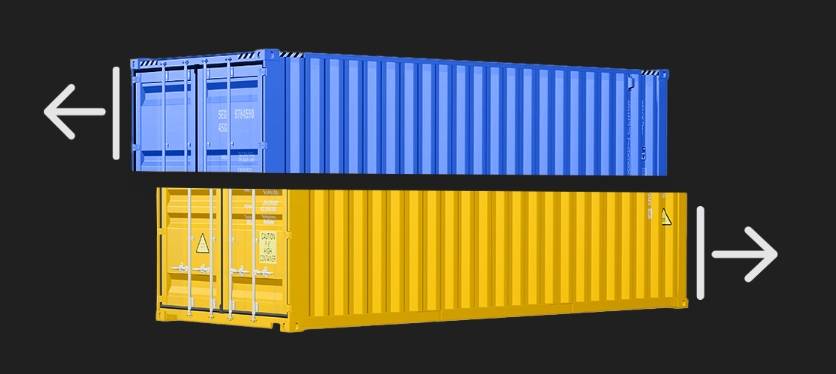Difficulties in the economy and a decrease in the purchasing power of citizens affect sales and, accordingly, logistics. Significant changes are expected in this area.
The business continues to relocate to the west
This means that on a national scale we will see a partial redistribution of demand. If in the industrially developed southeastern regions there is a decline in economic activity, then in the west of the country, on the contrary, there is a surge and an increase in the interest of entrepreneurs in investing resources. Internal migration creates the preconditions for the redistribution of infrastructure capacities and opens up new opportunities for the future.
The demand for fulfillment will grow
Any crisis requires the business to “dump the ballast”: this means that you need to get rid of non-core activities. Having your own logistics becomes unprofitable. After all, these are fixed costs that have to be borne regardless of the volume of sales: for the rental of warehouses, electricity, utilities and the salaries of couriers and logisticians. If there are few sales, it becomes simply unbearable. Therefore, companies start looking for fulfillment operators and pay them for each shipment of goods so that their logistics become variable costs. Outsourcing logistics allows businesses to be more flexible with demand volatility. Therefore, the fulfillment service is becoming more in demand.
Collaborations as a way to become more efficient and useful for consumers
In logistics, there is such a thing as the “last mile” – this is the last stage in the delivery of goods from the manufacturer to the client. It is on this path of the supply chain that the risks are greatest. Who is closer to the client, he will win. But maintaining that “last mile” has become more expensive and complex today. Therefore, businesses create collaborations and partnerships. For example, the demand for PUDO (pick up drop off) or mini-points for receiving and issuing parcels is increasing. That is, this is a rack in a coffee shop or a store where parcels are brought and picked up. The delivery service gets the opportunity to deliver the package closer to the client, and the coffee shop or store can sell an extra cup of coffee to the person who comes for the package.
Another example of collaboration is to combine cargo in order not to send half-empty cars (LTL logistics). This is already happening in the transportation of humanitarian aid, but will certainly spread to business.
Digitization is becoming a necessity
Unfortunately, today business profits are decreasing, and the question of cost reduction and maximum efficiency immediately arises. The issue of digitalization is acute in order to control the situation online and look for optimization points. For example, when the price of fuel doubled, the business began to more closely control which gas station and what kind of gasoline the driver refueled, where he went and whether his route was optimal. And so it is with all operational processes. Therefore, the digitization of business and logistics processes comes to the fore. And here people from the IT sphere will come in handy.
Big business will absorb smaller ones
War is a stress test for business, as a result of which weak and small businesses will close and sell off their assets. Those who are stronger have the opportunity to buy them out and invest in development. That is, for some this is the end of the business, for others it is an opportunity for scaling. Moreover, the competition for these assets is still small, because there are few companies among those wishing to acquire local Ukrainian companies that believe in victory and are ready to buy assets. This, of course, affects the price – assets are sold for quite a bit of money.
The role of price is growing, but reliability is more important. The fight for a customer’s wallet has never been so intense, because this wallet has become thinner. And at the same time, carriers are now unable to offer low prices, big discounts and loyalty programs due to a significant increase in prime cost (increasing the cost of fuel, spare parts, queues at the borders). The role of price is growing, but at the same time, now more than ever, both people and businesses need reliable partners who have been confirming the quality of their services for years, for delivery – this is speed, delivery in guaranteed terms, convenient service and cargo integrity.
Business is looking at new international markets
Realizing that the sales market in Ukraine is shrinking, Ukrainian businesses are beginning to look for new niches and new markets. They will tailor their products to reach customers outside of the country. This cross border model will have a significant impact on logistics, as the demand for transporting goods abroad will increase.
Every crisis is an opportunity. Europe and the world open doors for us, and Ukraine can give them large-scale digital projects, powerful personnel and modern start-ups that can be successfully scaled up in order to survive and continue to develop the economy and the well-being of people.

